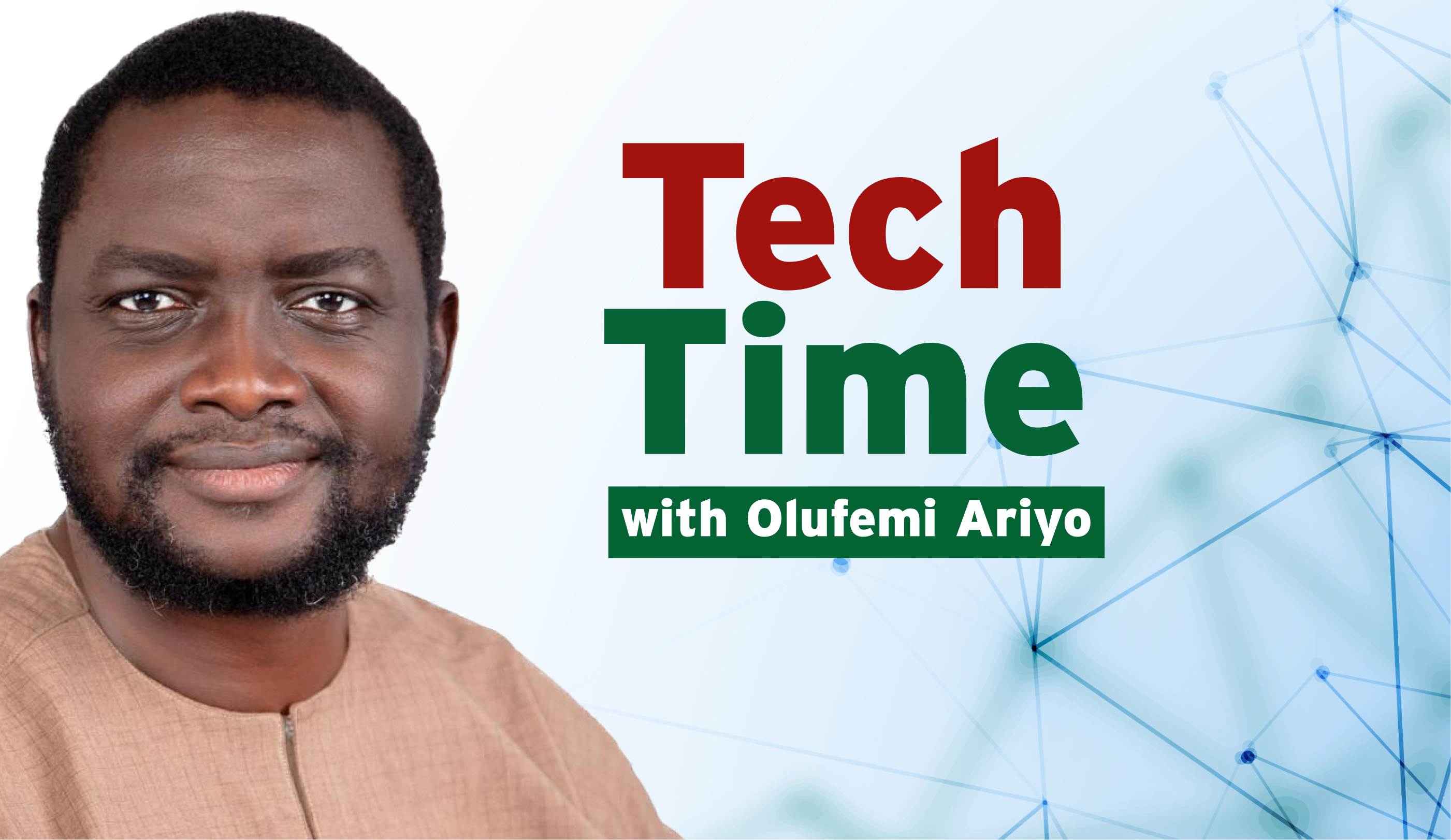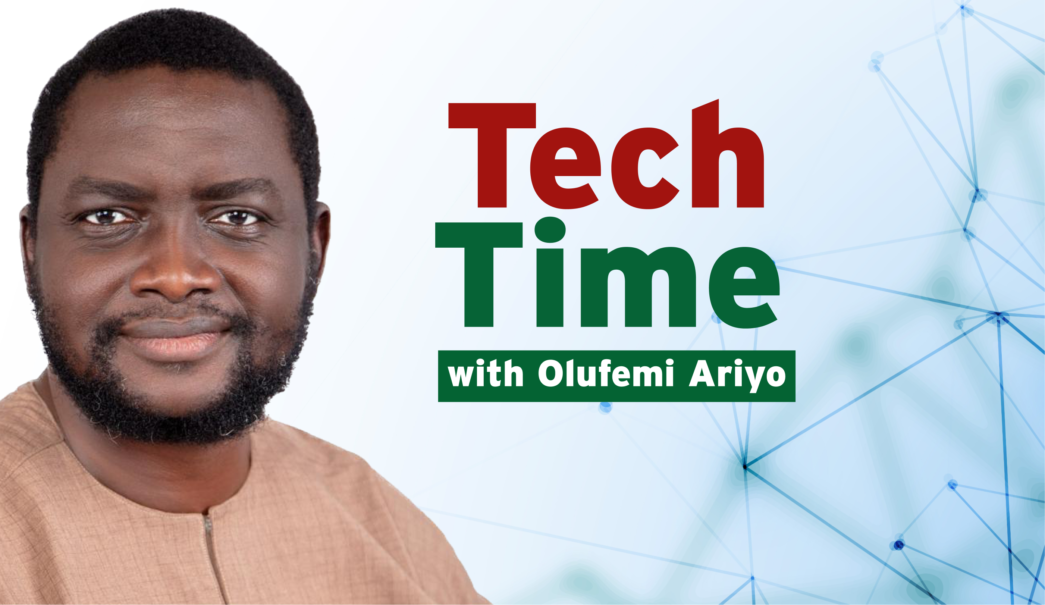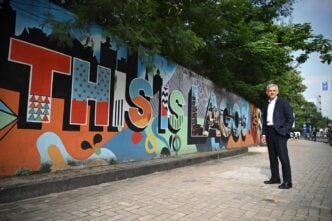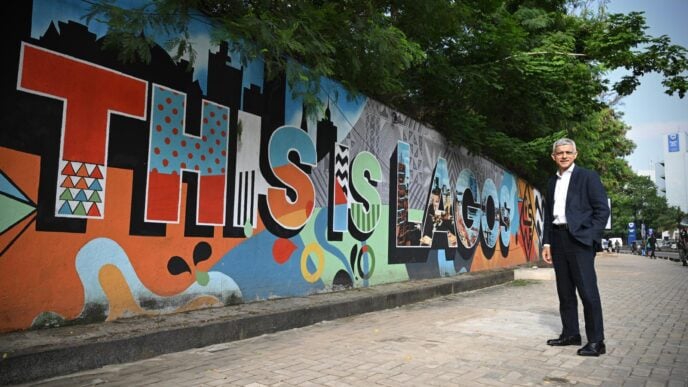Replacing misplaced self-actualisation with a kingdom-driven mindset in the digital age
For decades, Nigeria has been hailed as a land brimming with extraordinary potential – boasting abundant natural resources, a dynamic and youthful population, and a rich tapestry of cultural heritage that is the envy of many. Yet, despite these undeniable advantages, the nation remains ensnared in a persistent cycle of underdevelopment and systemic dysfunction. Chronic power outages cripple industries and homes alike; infrastructure across transportation, healthcare, and education steadily deteriorates; institutions meant to uphold justice and governance are weakened by inefficiency and mistrust; and poverty remains an unrelenting reality for millions of Nigerians.
This glaring paradox, of vast potential met with pervasive stagnation, raises a critical question: why has Nigeria’s promise remained largely unfulfilled? The answer transcends the usual narratives of policy missteps or corruption alone. At its core, it reveals a deeper, more fundamental issue: a profound misalignment in our national priorities, a collective disconnect in the way we define and pursue progress as individuals and as a society. Until we confront and recalibrate these human pursuits, the cycle of underdevelopment will continue to hold Nigeria back.
(A) The Maslow Misfire: Self-Actualisation Before Stability – Even in a tech-driven world
Advertisement
Maslow’s Hierarchy of Needs presents a logical progression of human motivation: before one can pursue esteem or self-actualisation, the foundational needs—such as food, water, shelter, security, and stability—must first be met. In developed nations, this hierarchy often informs social and economic policy. Governments invest in physical infrastructure, public health, education, and safety nets, ensuring citizens have a solid base from which to grow, innovate, and contribute meaningfully to society.
In Nigeria, however, this sequence is often reversed or ignored altogether. A notable portion of the population remains locked in survival mode, struggling with unreliable electricity, limited access to clean water, inadequate healthcare, and inconsistent income. Yet, rather than building systems to address these deficits, much of the national psyche is consumed with the race toward “self-actualisation”. But this is not self-actualisation in its mature form (marked by purpose, creativity, and service to others) it is a distorted version, often manifested in a relentless quest for status, fame, or personal branding.
Moreover, the rise of digital tools and social media platforms has intensified this misalignment. In a world where visibility can be mistaken for value, and where clout is often perceived as a substitute for competence, many chase the optics of success rather than the work it takes to build it. We see the outcomes every day:
Advertisement
- We crave tech fame without mastering the technology.
- We idolise influencers, while undervaluing engineers, teachers, and problem-solvers – some have even touted, “Education is a scam.”
- We build sleek user interfaces with no reliable backend—beautiful apps with no sustainable architecture – why some Banks have been hacked in recent times.
- We showcase “soft life” on Instagram while basic infrastructure—roads, power, water—remains in disrepair.
This leapfrogging of foundational development in favour of cosmetic success creates a hollow ecosystem. On the surface, we may appear modern and digitally savvy, but underneath, the systems are weak. The result is a nation where innovation struggles to scale, where tech ecosystems lack continuity, and where real progress is often sacrificed on the altar of appearance. If we continue to pursue “self-actualisation” without ensuring basic social and economic stability, we risk building castles on sand—spectacular in sight, but doomed to collapse.
However, to truly evolve as a tech-driven, modern society, Nigeria must re-order its developmental priorities: laying the groundwork that supports genuine innovation, promotes meaningful education, builds trust in institutions, and rewards substance over spectacle. Only then can we turn our digital tools into engines of national transformation rather than mere instruments of illusion.
(B) A Sage’s Inversion for the Digital Age: Seek First the Kingdom — Then Innovate and Build
Jesus’ words in Matthew 6:33 offer more than a spiritual principle—they present a timeless framework for societal transformation:
Advertisement
“Seek first the kingdom of God and His righteousness, and all these things shall be added unto you.”
This teaching stands in stark contrast to the Maslow-inspired hustle for material provision and self-actualisation. It is a spiritual inversion of the developmental pyramid: prioritise right standing, purpose, and alignment with divine order, and the essentials of life—what Maslow calls “basic needs”—will follow. In other words, when values lead, provision follows. In an image-conscious Nigeria, this has never been more urgent.
Today, we live in an age where digital tools give ordinary people extraordinary reach. Young Nigerians are launching apps, building brands, producing content, and creating digital movements. But the why behind our innovation matters just as much as the what. When the goal is fame, going viral, or wealth accumulation without purpose, we end up replicating shallow systems that cannot withstand pressure. Let us consider two contrasting examples, and then a third:
Case 1. Estonia: Digital Leadership Rooted in Public Service
Advertisement
Estonia, a small Baltic nation, embraced digital transformation early—but not for the sake of flashy headlines. Their guiding principle was “digital public good”. The e-Estonia model is built around trust, transparency, and service delivery—everything from digital IDs to blockchain-backed voting. The focus was not on glamor or international recognition; it was on serving citizens more efficiently and ethically.
Today, Estonia is one of the most digitally advanced nations on earth, not because they chased innovation, but because they prioritised integrity and public impact (pi-squared).
Advertisement
Case 2. Nigeria: Digital Creativity, Ethical Vacuum
In Nigeria, we are bursting with digital creativity—our youths are building startups, creating fintech apps, and exporting music, art, and culture globally. But often, the values foundation is missing:
Advertisement
- Some startups inflate user numbers to impress investors, only to collapse after funding dries up.
- Ponzi schemes disguise themselves as tech platforms, draining the poor.
- Influencers promote harmful or deceptive products for the sake of quick income.
- Apps are launched without accountability mechanisms, data privacy ethics, or inclusive design.
These are not technology problems, they are heart problems. They reflect a society more focused on what we can extract than what we can build for others.
Case 3: Kingdom-Driven Innovation: A New Standard
Advertisement
To “seek first the kingdom” in Nigeria’s tech ecosystem means:
- Building for the underserved, not just the banked elite.
- Embedding transparency and data ethics into fintech and healthtech platforms.
- Designing for inclusion, such that rural users, persons with disabilities, and low-literate populations are not left behind.
- Creating products that solve real problems, not just attract big funding rounds.
For example:
- Currex Financials, built on AI-powered payment systems, has the potential to drive financial inclusion. But the long-term success of such platforms will depend on stewardship—prioritising the unbanked, ensuring data privacy, and building secure, scalable systems for the many, not just the few.
- A faith-driven edtech startup could go beyond exam prep apps to embed character education, civic values, and spiritual literacy into its curriculum, helping raise a generation of builders, not just consumers.
- An AI developer might use machine learning not for facial filters or clickbait engagement—but to prevent agricultural losses, predict fraud, or improve healthcare access in rural areas.
Right-standing Scales Better Than Algorithms
The Kingdom of God is not an outdated concept for modern governance or innovation. It is a model of leadership rooted in justice, service, and trustworthy stewardship. These values scale better than any algorithm because they lay a moral and ethical foundation that compounds over time. If Nigeria can produce more tech entrepreneurs who are Kingdom-minded, more policymakers who see innovation as a tool for service, and more citizens who value truth over trends, we will not just have digital growth—we will have true national transformation.
The implication is that the road to national development is not through chasing digital unicorn status or global applause—it is by raising a generation that prioritises right-standing, justice, humility, and impact. To “seek first the Kingdom” in the digital era means to lead with purpose, innovate with empathy, and build with eternity in mind. It means believing that in aligning with God’s way, “all these things”—economic stability, innovation, global respect—shall be added unto us. Let Nigeria become the prototype for Kingdom-driven development in a digital world (so many religious houses—leaders should championing this).
(C) What Would This Look Like in Practice?
Integrating the Kingdom Mindset with Technology and National Development
A truly transformed Nigeria (one where technology serves purpose, leadership reflects integrity, and innovation uplifts the collective) can only emerge when Kingdom principles are intentionally woven into our development blueprint. This is more than just a moral aspiration; it is a practical strategy for systemic restoration. Here is how this might unfold:
- Servant Leadership Enhanced by Transparency Technologies
The Kingdom mindset begins with leadership that serves rather than exploits. But in today’s complex governance systems, good intentions must be backed by technology that fosters trust and prevents abuse.
- Blockchain can power transparent procurement systems, tracking every Naira in public contracts, from bidding to delivery, thus reducing corruption.
- AI can support predictive governance: using historical data and real-time trends to anticipate crises (like flood-prone regions or school dropout zones) and deploy resources accordingly.
- Civic tech platforms like BudgIT, Ushahidi, or a homegrown citizen feedback app can amplify local voices, improving decision-making through participatory governance.
Imagine a governor’s office livestreaming budget implementation with blockchain-backed proof of expenditures—leadership by light, not by shadows.
- Citizenship Powered by Ethical Digital Literacy
A nation cannot rise above the character of its citizens. In a digital Nigeria, citizenship must evolve beyond just civic rights—it must be about ethical digital responsibility.
- Digital literacy must include ethics, data protection awareness, anti-cyberbullying education, and critical thinking in the age of misinformation.
- Tech-savvy youths should be taught not just how to use AI, but why to use it—to solve problems, not create bots for fraudulent crypto scams or algorithmic manipulation.
- Programs like Code Lagos or NPower Tech could be upgraded to include modules on cyber ethics, kingdom stewardship, and social innovation.
A generation trained to protect digital dignity will protect national dignity.
- Tech Innovation Rooted in Social Impact and Integrity
Nigeria is blessed with thousands of brilliant developers, entrepreneurs, and creatives. But without moral foundations, innovation can be weaponised—enriching the few and excluding the many.
- The Currex App, for instance, is a promising AI-powered platform designed to increase financial inclusion, especially for unbanked populations. With its potential integration into rural merchant networks, micro-finance partnerships, and secure contactless payments, it demonstrates how fintech can become a tool for justice, not just a cash cow.
- Healthtech startups can use AI diagnostics for rural health clinics, and edtech platforms can bridge the learning gap for underserved communities.
- Local developers can build transparent crowdfunding systems for verified community needs, eliminating fraud and restoring trust in digital charity.
Let technology be seen not as a tower of Babel for self-glory, but as a “Noah’s Ark” of innovation—designed to preserve and uplift others.
- Education that Develops Character and Digital Skills
Today’s education system often rewards rote memorisation and certificates over curiosity, character, and critical digital competency. We must reimagine learning as both soul-forming and future-ready.
- Integrate character formation into STEM education: teaching humility, empathy, and stewardship alongside coding and data science.
- Embrace edtech platforms that promote collaborative problem-solving, such as design-thinking challenges rooted in real Nigerian community issues.
- Create tech-powered mentorship networks, connecting young innovators with industry leaders who model excellence and integrity.
Our future engineers, doctors, and designers must be taught to ask: “How does this solution serve people?” before “How much can I earn from it?”
- True Self-Actualisation as Collective Transformation
We often see success as individual escape—making it out of poverty, corruption, or a failed system. But Kingdom-driven development calls for lifting the system itself, not just climbing above it.
- True actualisation in Nigeria looks like:
- Smart infrastructure: solar-powered schools, IoT-enabled agriculture for farmers, AI-enabled traffic systems in Lagos.
- Digital inclusion for all: village women accessing e-commerce via USSD, disabled Nigerians using adaptive tech, and elders being educated through voice-led digital tools.
- Tech that heals division: platforms that promote national identity over tribal divisions, and digital media that celebrate collective progress over celebrity culture.
We rise not when one becomes great, but when many are empowered to live with dignity, ease of access, and hope.
Lastly, if Nigeria embraces this integration (that is, Kingdom purpose plus digital innovation) we will not just “catch up” to the world. We will lead. We will set the example of a nation where technology uplifts the right-standing, where innovation serves justice, and where development flows from alignment with God’s heart for humanity. We must stop chasing greatness and start building goodness; Greatness will follow.
(D) The Kingdom Blueprint: A Present Pattern for Tech-Enabled Nation-Building
The Kingdom of God is not a distant, abstract ideal reserved for spiritual contemplation—it is a concrete, actionable framework for how societies can flourish. At its core, the Kingdom embodies right-standing, justice, stewardship, equity, and truth—values that are essential not only for individual transformation but also for nation-building in the digital age.
As Nigeria grapples with the challenges of underdevelopment amid a fast-evolving global tech landscape, the Kingdom mindset offers a moral compass and structural map. When aligned with cutting-edge technologies like blockchain, artificial intelligence (AI), and mobile platforms, it becomes a revolutionary force for national renewal. Here is how seeking first the Kingdom—and its righteousness—can guide Nigeria into a future of purpose-driven innovation:
- Transparent, Accountable Governance Powered by Blockchain and AI
In a nation where governance is often marred by opacity and corruption, the Kingdom value of truth and accountability can be actualised through smart technology.
- Blockchain can be used to track public funds, prevent budget diversions, and ensure transparency in procurement and election processes. Every Naira spent on a project, whether it is school feeding or road construction, can be publicly auditable in real time.
- AI and data analytics can provide predictive governance, helping leaders anticipate crises (e.g. healthcare shortages, violence prone zones) and allocate resources proactively rather than reactively.
- Digital feedback platforms, like AI chatbots integrated into government portals, can allow citizens to report infrastructure failures, policy abuse, or misconduct—ensuring accountability at the grassroots level.
Kingdom principle applied: “Let your ‘Yes’ be ‘Yes,’ and your ‘No,’ ‘No’.”
Tech translation: Smart contracts and immutable records that build trust and dismantle corruption.
- Inclusive Financial Systems through Ethical Fintech Innovation
The parable of the talents teaches us about the wise use of resources and economic inclusion. Nigeria’s millions of unbanked citizens—especially in rural and underserved communities—are not lacking in potential, only in access.
- The Currex model, as an AI-powered platform, is a shining example of how contactless payments, smart lending, and more can reach informal traders, artisans, and micro-businesses—many of whom are women and youth.
- Fintech companies can integrate credit scoring systems using alternative data (like mobile phone usage or transaction histories) to empower those with no formal bank accounts.
- Blockchain-based micro-loans or community savings systems could provide secure, interest-free capital for cooperative-based entrepreneurship, aligning with biblical principles of just lending.
Kingdom principle applied: “Whatever you did for the least of these… you did for me.”
Tech translation: Build digital platforms that include (not exclude) the poor, vulnerable, and digitally invisible.
- Promoting Ethical Digital Citizenship Across Generations
With over 70% of its population under 30, Nigeria wields a tech-savvy youth force poised to shape the digital future. But without ethical grounding, digital power can be misused—for fraud, identity theft, manipulation, or cyberbullying. A Kingdom-aligned tech ecosystem must equip not just with skill, but with character.
- Digital literacy curricula must now include ethics, cyber wellness, and critical thinking, alongside coding and device training.
- National campaigns could partner with influencers, faith leaders, and tech creators to promote digital integrity, challenging the glamorisation of online scams like ‘Yahoo Yahoo’ and the obsession with fabricated status.
- Young Nigerians should be empowered to use tech for advocacy, civic participation, and community upliftment—focusing on local issues, building humanity-nurturing solutions, and becoming digital salt and light.
Kingdom principle applied: “Blessed are the pure in heart, for they shall see God.”
Tech translation: A generation that sees clearly in the fog of misinformation and uses technology to serve humanity—not deceive it.
- Harnessing AI and Data to Solve Nigeria’s Deepest Challenges
The wise sage, Jesus, did not come to fix symptoms—the records showed that He healed at the root cause. Likewise, our technology must go beyond surface-level apps and marketing glitz to tackle core development issues.
- Power supply: AI can analyse national grid data to identify loss points, recommend distribution upgrades, and integrate renewables more intelligently into the grid.
- Healthcare: Mobile diagnostics powered by AI, coupled with wearable devices, can help rural clinics detect diseases early and predict outbreaks before they spiral.
- Agriculture: Satellite imagery and AI can help farmers optimise planting cycles, monitor soil health, and increase yields—turning food insecurity into food sovereignty.
Kingdom principle applied: “Let your light shine before men, that they may see your good works…”
Tech translation: Build solutions that radiate impact and illuminate dark corners of poverty and inequality.
Kingdom Technology Is Redemptive Technology
Technology is not neutral. It either serves to redeem or corrupt, liberate or enslave. Nigeria’s future will not be determined solely by its engineers, programmers, or investors—but by the values that guide their work. The Kingdom of God, as used in this piece, is a living operating system—one that, when installed in our institutions, businesses, classrooms, and devices, produces peace, equity, and flourishing. Just as the wise one, Jesus, brought heaven’s order into earthly chaos, Nigerian innovators, leaders, and citizens must now bring heavenly values into digital ecosystems. It is in this convergence (between right-standing and relevance) that Nigeria will rise.
Concluding Thought: From Viral to Vital — Rebuilding Nigeria from the Ground Up
Nigeria does not merely need more billionaires, celebrities, or viral success stories. What we urgently need are builders—men and women who understand that true greatness is not measured by individual achievement atop a crumbling foundation, but by the courage to repair, elevate, and reconstruct the systems that sustain a nation. Too often, we celebrate visibility over value, applause over impact. We have mistaken virality for vitality—forgetting that a trending post can disappear in 24 hours, but a well-laid foundation can last generations. The future Nigeria needs is not one built on fleeting fame, but on durable infrastructure, ethical governance, inclusive innovation, and spiritually grounded leadership.
It is time to redefine self-actualisation—not as the pursuit of personal glory at any cost, but as the fulfilment of one’s potential in service of something greater. This is where the Kingdom framework becomes not just a personal creed, but a national strategy. When we seek first the Kingdom of God and His righteousness, we commit to a way of life and leadership that elevates justice over greed, service over status, truth over propaganda. This seeking must go beyond the walls of worship centres—it must infuse:
- Technology, where innovation is guided by integrity and inclusion;
- Governance, where authority becomes stewardship;
- Education, where we train not only competent minds but compassionate hearts;
- Business, where profits are pursued with purpose and societal upliftment in mind.
Only when our innovation is aligned with righteousness can we truly expect “all these things”(progress, prosperity, peace) to be added, not just to individuals, but to the nation as a whole.
Finally, we must shift our collective energy from “How can I go viral?” to “How can I be vital?“
Let us become architects of transformation—not just consumers of trends. Let our platforms, talents, and tools reflect the values of the Kingdom. And let us not settle for pockets of success in a sea of dysfunction, but instead build a Nigeria where everyone, from the street vendor to the software engineer, can thrive. Because when we seek the Kingdom first, we don’t just change our destiny—we rewrite the story of our nation.
Thank you for the sustained investment in time. Please share, comment, clap for, reach out, follow, and listen to me on Medium: https://medium.com/@roariyo, Twitter: https://twitter.com/ariyor, and LinkedIn: https://www.linkedin.com/in/olufemiariyo/ or email me: [email protected]










